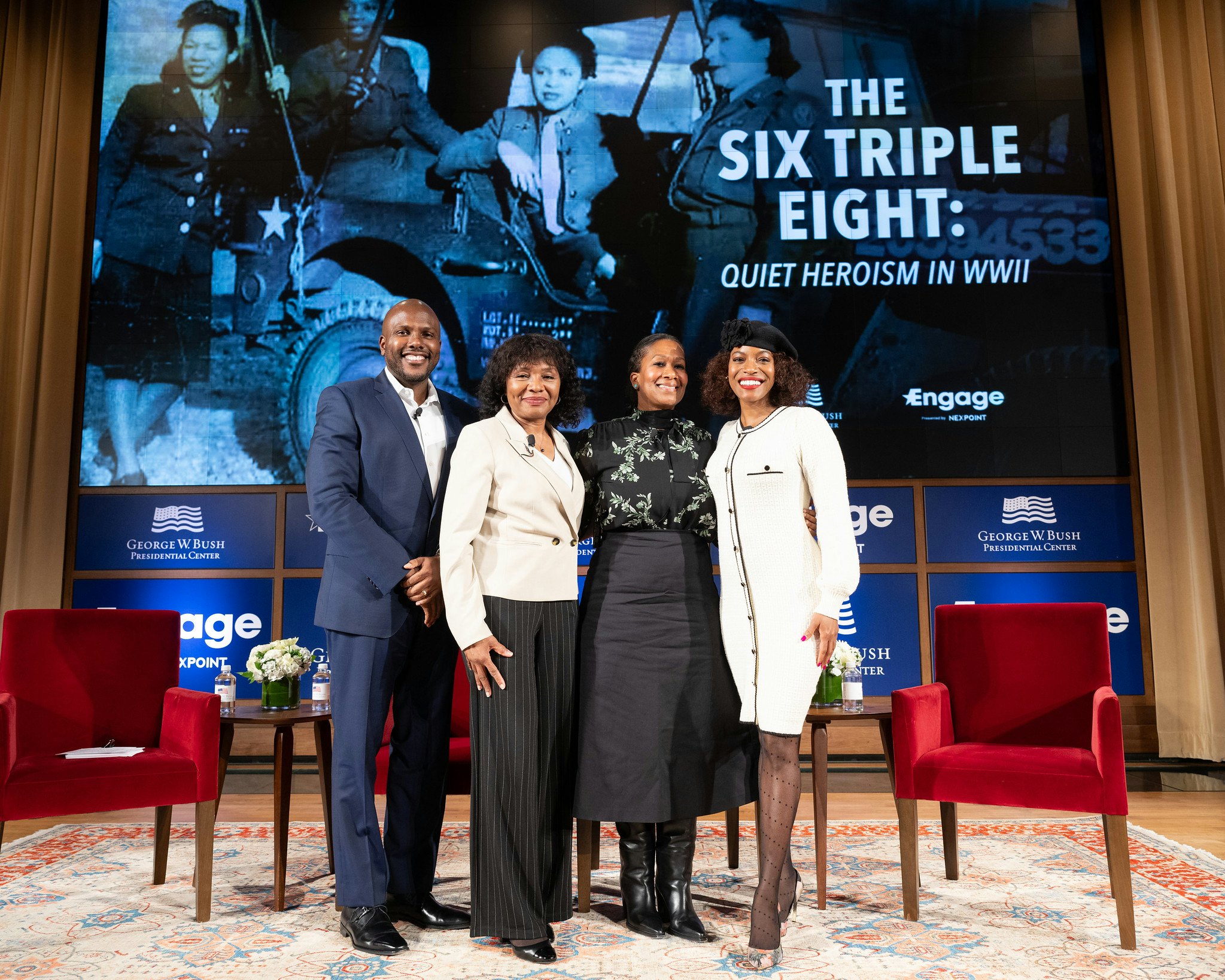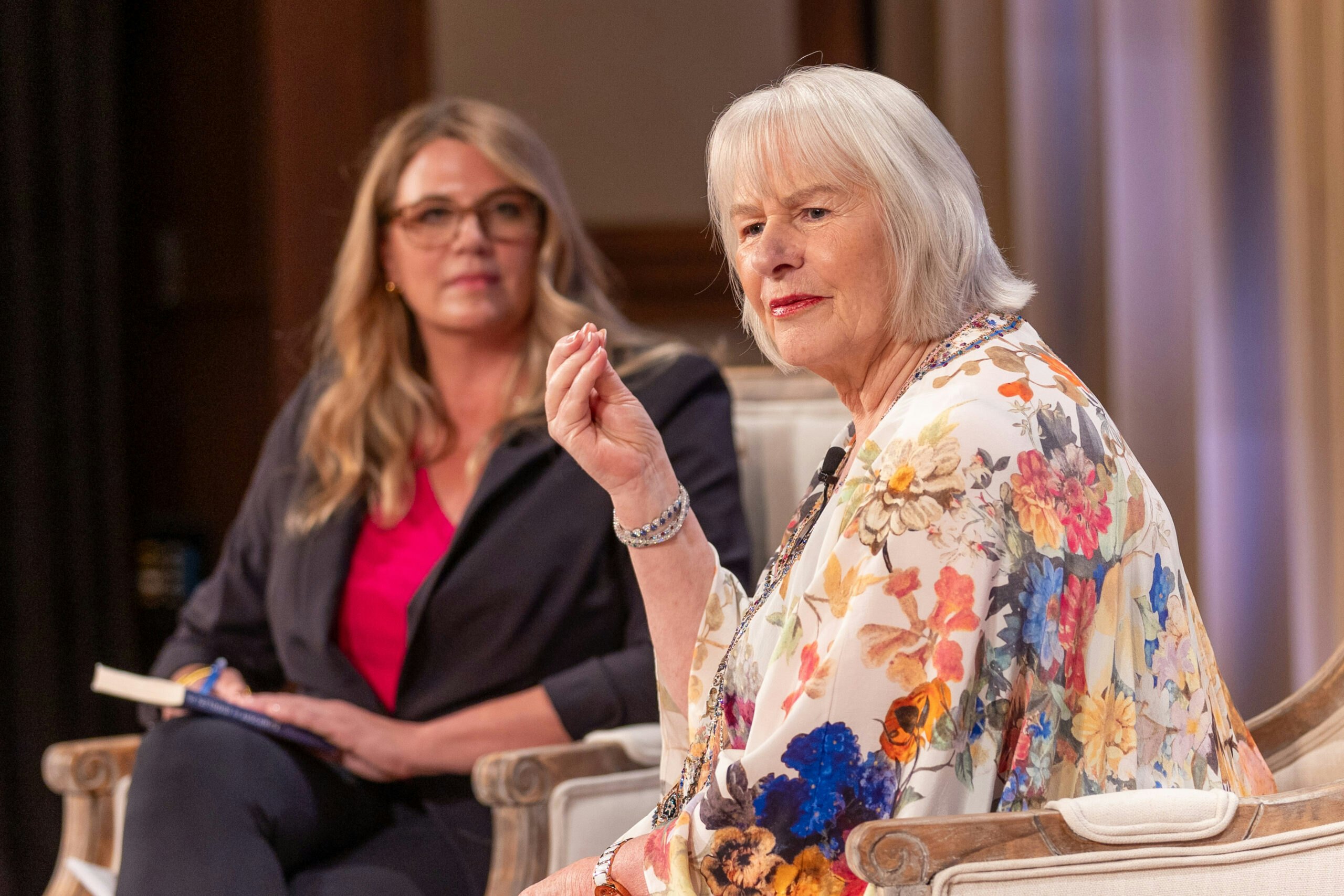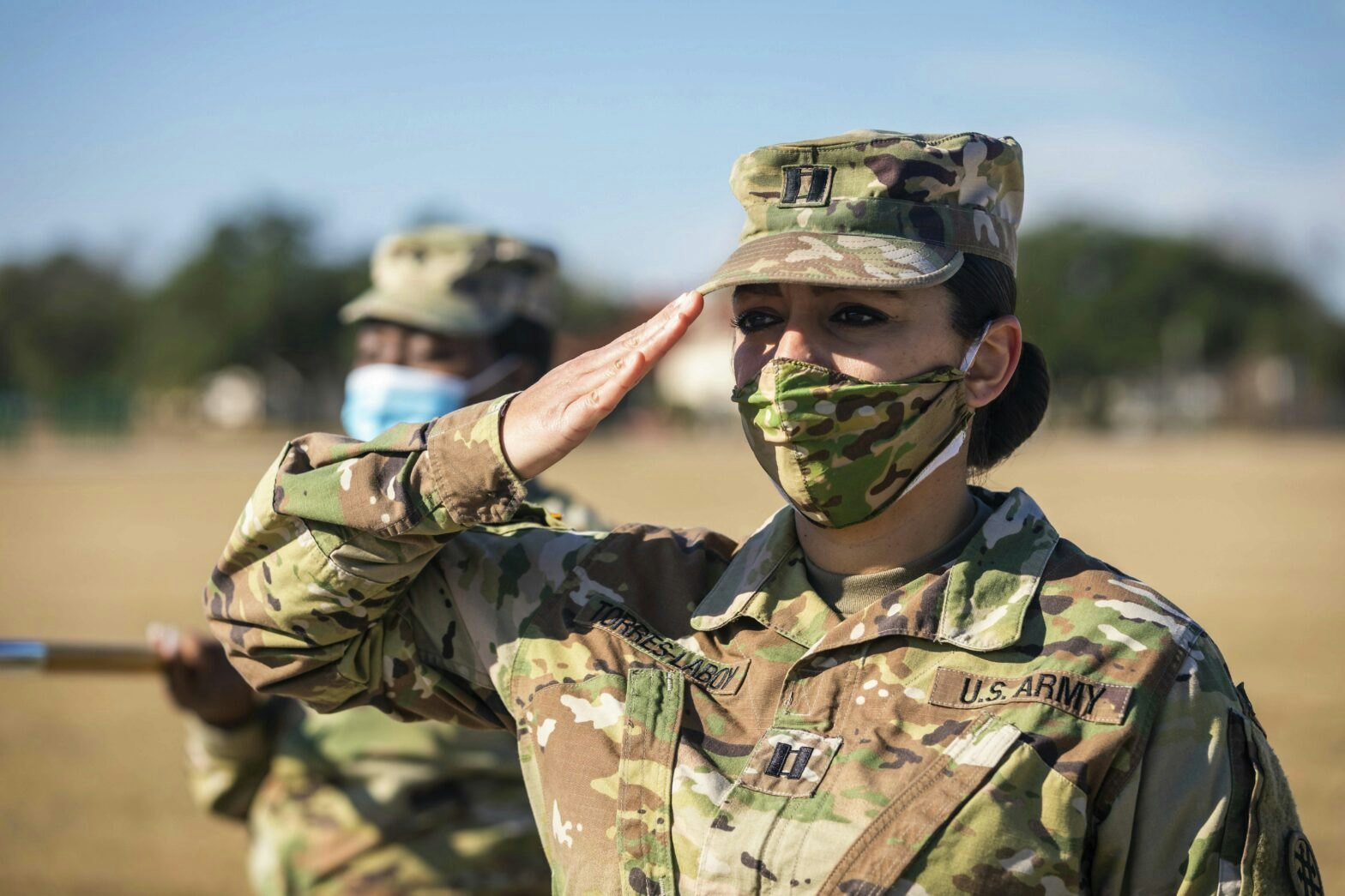Women in Afghanistan have experienced incredible progress over the last ten years, and the hard-won gains of the last decade must not be reversed....
Women in Afghanistan have experienced incredible progress over the last ten years, and the hard-won gains of the last decade must not be reversed. Girls have returned to school to become educated, like their brothers, and women are serving as provincial governors and members of the National Assembly. Their stories inspire us, and remind us of what is at stake for Afghan women.
As part of the Women’s Initiative Afghan Women’s Project, we are launching a blog series that spotlights the success stories of courageous Afghan women and girls. The first in the series highlights Shabana Basij-Rasikh. Her intriguing tale confirms the longing of all humanity for freedom and knowledge, and it reinforces our resolve in supporting brave women, like Shabana, who simply desire to become educated and productive members of society. Shabana’s powerful story serves as an example and inspiration to people the world over. Let’s stand with Shabana, and countless others like her, to ensure that her future affords all the possibility it can … and should.
Shabana Basij-Rasikh
Not many 20-something young women can boast that they have been interviewed by Christiane Amanpour on CNN or invited to present alongside the UN Secretary General and World Bank President. Shabana Basij-Rasikh has a fascinating and compelling story, and she has dedicated her life to a simple, but profound purpose – quality education for girls in Afghanistan.
Like many others, I came to the interview with Shabana fascinated by her personal story. As a child, she dressed as a boy and attended a secret school. After the fall of the Taliban, she negotiated with local leaders to get more resources for education. She excelled academically, traveled on educational exchange and won scholarships to a prominent U.S. liberal arts college. Her leadership and dedication to girls’ education led to her selection as one of Glamour Magazine’s Top 10 College Women of 2010 and winner of Vermont Campus Compact 2011 Kunun Public Award for outstanding public service, effective leadership and community-building. Shabana serves as a 10×10 Global Ambassador for girls’ education, and is the current Managing Director of SOLA (School of Leadership, Afghanistan).
The Privilege of Education
When Shabana describes her family and her childhood, her eyes light up. One of 6 children, Shabana describes her childhood as “privileged,” not in an economic sense, but because her parents provided their children, whether boys or girls, equal opportunity to go to school. Academic excellence was a priority and a responsibility for all within their household, and Shabana pursued it eagerly alongside her brothers and sisters.
“I have never met anyone who is as committed to education and values education as much as my parents do,” Shabana said. From her days attending a secret school during Taliban rule to her years at the prestigious Maryam High School in Kabul, Shabana excelled. “I grew up very ambitious, and my parents made it clear that studying was important.” Education, Shabana was taught, was not important because it would provide the “good life,” but because it would enable her to educate others and serve her community.
“A Doctor, A Lawyer, An Engineer, A Pilot”
Like many other educated Afghans, Shabana grew up wanting to become a heart surgeon, a highly regarded field in Afghanistan and the pursuit of many top students. During her year on a high school exchange program sponsored by the U.S. State Department and later during her tenure at Middlebury College, Shabana relished her time outside of Afghanistan because it gave her the opportunity to consider her country – its opportunity and challenges – from a different perspective. As she studied, she learned that Afghanistan had the world’s highest maternal mortality rates, where 1 in 5 women would die in childbirth during her lifetime, and one of the world’s highest female illiteracy rates, where less than 10 percent of women could read and write. “I had time and space to ask myself real questions,” she said. “I asked myself, ‘What can I do to affect change? Can I do anything as an individual? What is realistic? What is necessary?’”
As Shabana learned about the challenges facing her country, her lifelong goals began to change. “When I came to the U.S., I realized I not only wanted to be a doctor, but I wanted to be a lawyer because there is so much to be done on women’s rights. I wanted to be an engineer to rebuild my country, and a pilot to deliver supplies. I wanted to become all of these people and all of these things so that I could do something for my country.”
As one of a lucky 6 percent of Afghan women who receive a college education, Shabana felt a sense of obligation to make a positive contribution to her country, but she could not decide which vocation would make the largest impact. “Then one day it hit me,” she said. “In order to do all of these things I wanted to do in my life, I had to become an educator. It is only by giving other women an opportunity to become doctors and lawyers and engineers and pilots that I can fulfill all of these desires.”
School of Leadership Afghanistan (SOLA)
As an educator, Shabana seeks to multiply herself and expand opportunities for other young women in Afghanistan. Shabana believes that solutions to Afghanistan’s biggest challenges will come from within, not from outside. Quality education, which goes beyond literacy and memorization into critical thinking, language skills and problem solving, is crucial to the future of her country. Shabana wanted to build a school where girls could prepare for rigorous secondary and tertiary academic programs throughout the world. She co-founded SOLA (School of Leadership, Afghanistan), a Pashto word meaning “peace,” in her efforts to prepare Afghanistan’s next generation of female leaders.
Shabana’s initiative could not come at a more crucial moment. Afghanistan is a very young country, with over 65 percent of the population under the age of 25 (CIA Factbook, 2012). Shabana is proud of the fact that the youth in her country are hungry to learn, to be involved in social, political and economic life, but knows that the current educational system is outdated and underdeveloped. While great gains have been made to increase children’s access to education, the curriculum and textbooks in many schools are more than 40 years old. Currently, many of Afghanistan’s brightest students seek educational opportunities abroad, an effective “brain drain” of Afghanistan’s most promising youth. “They must get good education! It is time for Afghanistan – if we want our leaders, our doctors, our politicians to bring change to Afghanistan, they need the skills to bring that change.”
SOLA actively recruits a diverse student body, one that represents Afghanistan’s ethnic and cultural diversity. The 25 young women currently attending SOLA hail from 16 different provinces. In a country that faces deep ethnic tensions, SOLA seeks to develop tolerant, empathetic leaders. Students sign a language pledge that requires them to speak English only, and an honor code, which requires them to respect, accept, appreciate and promote each member of the SOLA community, regardless of ethnic or religious difference. “I tell all of the young women who come, ‘You are a future leader of Afghanistan; you are smart and you are driven. You have this opportunity because you deserve it. Congratulations!’ Then I tell them that true leaders embrace all those who live in Afghanistan whether Sunni or Shia, Tajik, Pashtun, Uzbek, or Hazara.”
Shabana envisions a day when international students will apply to SOLA because of its reputation for academic excellence. Her goal is to build an internationally accredited boarding school within the next 5-10 years. “This is my dream and vision, and I want to speak loud about it! I want to tell people how feasible it is to build a world-class educational institution within Afghanistan.”
Zooming In On Girls’ Education – Author’s Reflection
It was an absolute honor to interview Shabana for this piece. Her vitality, friendly nature and unshakable dedication to the young women inspire thought and action. However, of all of the things I learned from her, there was one moment that undoubtedly left a mark on me as a researcher and as an individual.
I came to our interview fascinated with her story. I had read as much as I could find about her, watched her television interviews and TEDx talks, and wrote down a long list of questions. More than anything, however, I wanted her to tell me the story about how she disguised herself as a boy in order to walk safely to a secret school. During our conversation, I gently prodded in that direction, asking Shabana about what she had to overcome to pursue education as a child. Very gracefully, she redirected me, “The reality of my initial education woos people, but I don’t want that to be the only thing that they remember. I don’t want my history to get in the way of what I am doing and what is happening now.”
Shabana’s words hit me. I consider myself a very careful, thoughtful person, but I realized in that moment that I was at risk of locking someone into a past story, a single aspect of her childhood, instead of actively participating in her present and future. I remembered a favorite quote from a women’s rights activist, “If you have come to help me go back home. But if your liberation is linked to mine, then let’s roll up our sleeves and start working together.”
We spent the majority of our time together talking about the youth of Afghanistan and her current work with SOLA, a boarding school in Kabul that teaches girls the language and critical thinking skills necessary to compete for international scholarships to secondary and tertiary institutions worldwide.
Shabana is an absolutely lovely young woman. She is genuine, passionate, hard working and funny. My interview with her challenged me to step back from the headlines from Afghanistan and, as she says, “zoom in” to take a closer look at the country and its people. Perhaps as we consider the plans and dreams of one young female educator, we will see simple steps to fuel change in Afghanistan – through the hearts and minds of an eager, forward-looking generation of educated young men and women.























